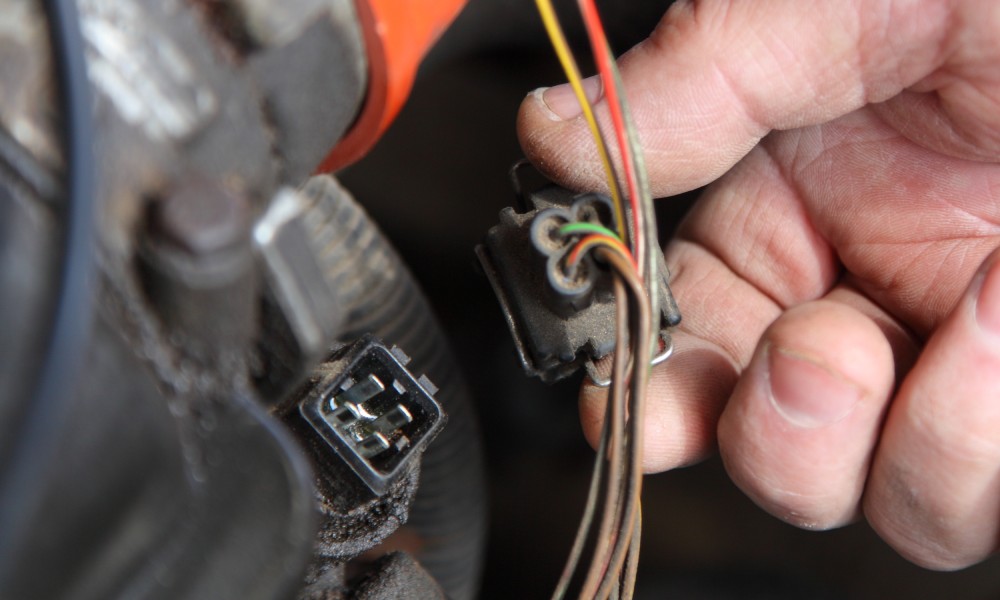9 Areas of Your Car That Need Electrical Connectors and Why
9 Areas of Your Car That Need Electrical Connectors and Why

Electrical connectors are essential in modern vehicles for ensuring seamless communication between various components. Automotive technicians and vehicle owners should understand their significance in maintaining vehicle performance and safety. Expand your understanding of nine areas of your car that need electrical connectors and why.
Engine Control Unit (ECU)
The ECU is the brain of the car, managing engine performance, fuel efficiency, and exhaust emissions. Electrical connectors link sensors and actuators to the central control system, enabling precise monitoring and adjustments. The ECU could fail to work correctly if the automotive connector or wires become damaged, which can lead to suboptimal engine performance and increased emissions.
Infotainment System
Modern vehicles have sophisticated infotainment systems that integrate audio, video, navigation, and connectivity features. Automotive connectors allow the head unit to communicate with various devices and sensors, such as cameras, microphones, antennae, and speakers.
For example, hands-free calling requires a connector to link the microphone to the head unit, while satellite navigation relies on a GPS antenna for data transmission. Without connectors, infotainment systems would be unable to function, limiting the driving experience.
Airbag System
Reliable electrical connections ensure the deployment of airbags in the event of a collision. Electrical connectors link sensors, control units, and the airbags themselves. A single faulty connector can prevent airbags from deploying, jeopardizing passenger safety.
Lighting Systems

Exterior lighting systems allow drivers to warn others of their presence, intentions, and potential hazards on the road. Headlights, taillights, turn signals, and brake lights rely on electrical connectors to receive power and signal input from switches. If the connector wears out or malfunctions, lighting systems may fail to work, which can lead to accidents.
The pin connectors in vehicles vary per model. For instance, towing vehicles often require a connector with more pins than a sedan since the former needs power for its lights and that of the trailer.
Battery System
Many of us have experienced our car battery dying or know someone who has. This can happen for numerous reasons, including damage to the electrical connectors. If the car battery fails, other systems, such as the lights, wipers, and starter, will also fail.
Poor electrical connections prevent the battery from charging. For instance, corroded connectors or broken wires may hinder charging.
Transmission Control (TCU)
The TCU communicates with sensors and solenoids to facilitate gear shifts in automatic transmission vehicles. From here, the control modules process data and make precise gear selection and shift timing adjustments. Then, actuators execute adjustments by engaging the appropriate gears. This intricate network of connections and components allows the transmission to adapt promptly and efficiently to varying driving conditions.
Any disruption in this communication can cause problems with shifting and result in a jerky ride or even transmission failure.
Anti-Lock Braking System (ABS)
Automotive connectors link wheel speed sensors to the ABS control unit, allowing real-time monitoring and adjustments during braking. This prevents the wheels from locking, provides better control, and reduces the risk of skidding.
Without the appropriate electrical connectors, the ABS could not prevent wheel lock-up, compromising braking performance and safety. Moreover, faulty connectors within the system could misinterpret signals and lead to incorrect braking, endangering the driver and other road users.
Relays and Sensors
Relays and sensors are responsible for various functions, including switching power, controlling lights and wipers, and monitoring. Since all these systems use wires to transmit signals, reliable connectors are crucial for data transmission.
Advanced Driver-Assistance System (ADAS)
Advanced driver-assistance systems encompass many safety features that improve vehicle performance and passenger safety. Key elements include adaptive cruise control, which automatically adjusts the vehicle’s speed to maintain a safe distance from the car ahead. Likewise, ADAS alerts drivers if they drift out of their lane without signaling or need to brake suddenly to avoid a collision.
The vehicle must seamlessly communicate with various sensors and actuators. Automotive connectors keep wires organized and connected to specific systems, which enables accurate data transmission.
Diagnose Electrical Connector Problems
Electrical connectors are prone to wear and corrosion over time. As the component wears out, specific areas of the vehicle may fail to function. When a car cannot work the way it should, the driver, passengers, and other motorists may be at risk.
When diagnosing electrical problems in your car, you should do the following:
- Identify the source of the problem by checking for loose or damaged connectors, wiring harnesses, and fuses.
- Use a multimeter to test the continuity and voltage of electrical connections.
- Check for corrosion, as it can prevent connectors from joining.
- Replace corroded connectors to restore functions.
Once you diagnose and address any connector issues, test the component again to ensure it functions.
Pro Tip
Test the vehicle for functionality before taking it on the road. If you still notice issues after a test drive, you should address them.
Why Using the Right Connector Matters

Automotive technicians and vehicle owners must understand which areas of a car need electrical connectors and why so they can perform repairs. It is essential to use compatible and durable connectors.
Although all nine of these vehicle areas rely on automobile connectors, they don’t necessarily use the same type; each system has unique requirements. Inspect the size, shape, and number of the damaged connector’s terminals, and buy a replacement that matches it.
If you’re unsure which connector you need, review your vehicle’s manual or contact a connector manufacturer. Companies that produce connectors in-house understand automotive connectors and can help you find the right one for your car.
Shop for Automotive Connectors
Connector Experts offers one of the largest selections of high-quality automotive connectors on the market. You can search our products by the number of pins or your vehicle’s make, model, and year. Whether you need a two-wire electrical connector or one with numerous pins, you’ll find it in our shop.
If you cannot find the connector you need, email a photo of your current connector from all angles plus the information on your vehicle. Our knowledgeable staff can assist you in finding the right connectors for your vehicle, ensuring reliable operation and optimal performance.

You must login to post comments.